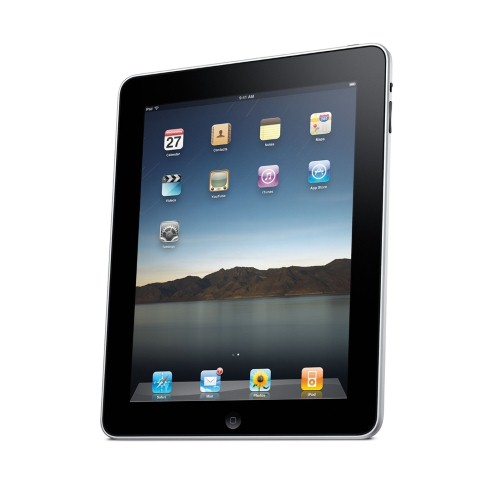Digital passports could be on the papers
- Details
- Created on Friday, 06 January 2012 17:35
- Written by Editorial staff

A Canadian citizen has been able to enter the US and return to his home country unopposed with a scanned copy of his passport stored on his iPad.
Quebec resident Martin Reisch told the Winnipeg Free Press on January 3 (local time) that he was on his way to deliver presents to family friends on December 30 2011 when he realised he did not have his passport on him.
Instead of turning round and beginning the two-hour drive back home for the official document, Reisch remembered he has a scanned copy of the front two pages stored on his tablet device.
Half an hour from the border, the 33-year-old said he decided to try his luck.
"I figured I'd try, and in the worst case, I would have to go home," Reisch told reporters.
On handing both his driver's license and the iPad to the border guard, the Canadian citizen said he received an uncertain reception from the officer.
Reisch asserted: "He kind of gave me a stare, like neither impressed nor amused."
In Australia, only original documents are considered acceptable as forms of identity - although they do not always need to be passports.
However, physical reproductions and digital facsimiles are not considered by the Department of Immigration and Citizenship (DIAC) to be "acceptable travel documents".
The same is true in the US - although Reisch says that it took only five minutes of waiting before the border guard returned and said he could proceed, wishing the driver a happy holidays.
"I think a good part of it had to do with the fact that it was the holidays and I seem like a nice-enough person," said Reisch.
The case seems to be highly irregular in nature, with a US Customs and Border Patrol spokesperson telling Wired.com on January 4 that the use of a scanned image as the sole form of identity was "categorically false".
"In this case, the individual had both a driver’s license and birth certificate," said the spokesperson.
However, it does raise the possibility of passports and migration visas one day being stored and accessed electronically - a prospect bound to be welcomed by frequent travellers.
An e-passport would need to carry with it some form of encrypted security or failsafe to help prevent forgeries, but electronic IDs and immigration visas would be developments that Reisch says he could appreciate.
"It's a recognized form of checking in [with airlines], so I see the future as 100 per cent being able to cross with your identity on a digital device - it's just a matter of time."
News Archive
- 2014
- 2013
- December (21)
- November (29)
- October (21)
- September (20)
- August (22)
- July (21)
- June (20)
- May (23)
- April (22)
- March (27)
- February (19)
- January (20)
- 2012
- December (14)
- November (17)
- October (20)
- September (16)
- August (23)
- July (21)
- June (18)
- May (22)
- April (18)
- March (20)
- February (18)
- January (19)
- 2011






